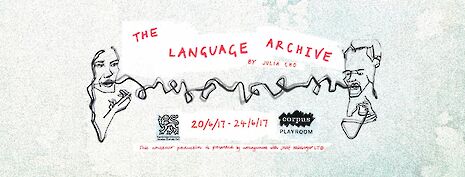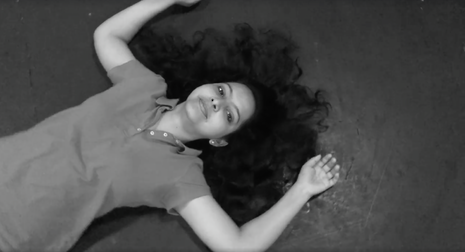Embracing universality in The Language Archive
Sneha Lala chats to director, Caroline Yu about The Language Archive, a play that “promises creativity right down to its staging”

In a week that is filled with traditional plays, Caroline Yu’s The Language Archive is both refreshing, modern and different.
I asked Caroline what drew her to the play, and her revelations following intricate research into different playwrights and their bodies of works revealed the careful thought that went into her choice. “There is a certain kind of play that tends to get put on. They are the kind of play which are inherently hard to cast race blind. There’s a racial coding underneath. I was keen to put on a play that hadn’t been put on before by a different playwright.”
“I was literally just looking at plays and reviews and I found Julia Cho. There was a play that I read by her called 99 Histories that explored Asian heritage in a modern American landscape; the experience of BME people and the disparities and obstacles they faced. I started looking more into her and stumbled onto The Language Archive.”

However, instead of choosing the overtly political 99 Histories, Yu went in a different path. Whilst recognising the place for distinctly BME theatre, she wished to go a step further with her project and put on a play which was truly race blind, thereby normalising the presence of BME performers in Cambridge theatre, without the need for a specific BME opportunity to do so; “I really liked how universal everything in the play was and how universal the characters are. It’s something that transcends the boundaries of race - it embraces diversity. It doesn’t specify races for the roles but everything is so universal and about the language explored that the race really doesn’t matter to the role.”
The importance of inclusive language became clear in our conversation as she told a story from an audition where “one guy who came in and [had] never auditioned for anything before- he was amazing. He said the only reason he came because it said BME talents were welcomed. He should be auditioning for everything. There’s a responsibility to be as open and encouraging as possible.”
“It’s something that transcends the boundaries of race - it embraces diversity”
The universality of her choice further comes into play as she had decided on it before the category for a BME writer was introduced for the ADC and Corpus applications, and whilst Yu recognises the importance of representation, it wasn’t why she chose the play. “What drew me to the play essentially wasn’t the whole race thing. It was just that when I read it, it was this really clever way about telling a story about love. The parallels it ran between languages and the obsession with fluency and communication as a society and being articulate.”
The rehearsal process was one of collaboration, and creativity. “It’s nice working with a small cast because you all get really close. The actors have had a lot of input in the process of forming their characters. The whole experience of it has been really collaborative.”
Her adaptation promises creativity right down to its staging. “It’s a play that has five different settings, which is quite difficult to do in Corpus. The way we’ve done it is the fundamental set, the permanent set, is the archive. It’s nice to have the archive as a constant presence as it’s a constant reminder of George’s obsession with his work, even when in his home. We wanted to do a fun twist to the typical idea of what an archive would look like. Instead of wooden shelves, we’re piling up paper boxes right to the ceiling, with different textures so some come out of the walls; we’re creating a literal storage room. The boxes are white so they still resemble walls and allow projections to be played onto them.”
“The set is quite interactive - the actors literally store things in the boxes - packing the set into the walls, the props throughout become a part of the play, just like the audience becomes a part of the play through the interactive aspect of it.”
Ultimately, Yu’s adaptation promises to be intimate, moving, engaging and most of all, a truly universal piece of theatre
 Comment / Why Cambridge needs college chapels11 June 2025
Comment / Why Cambridge needs college chapels11 June 2025 News / Cambridge professor denies falsifying test results in £1 million NHS claim11 June 2025
News / Cambridge professor denies falsifying test results in £1 million NHS claim11 June 2025 News / Dropouts at Cambridge fall to five-year low9 June 2025
News / Dropouts at Cambridge fall to five-year low9 June 2025 News / Downing’s rugby team apologises over ‘inexcusable’ social media post12 June 2025
News / Downing’s rugby team apologises over ‘inexcusable’ social media post12 June 2025 Features / Inside Cambridge’s nuclear bunker10 June 2025
Features / Inside Cambridge’s nuclear bunker10 June 2025





